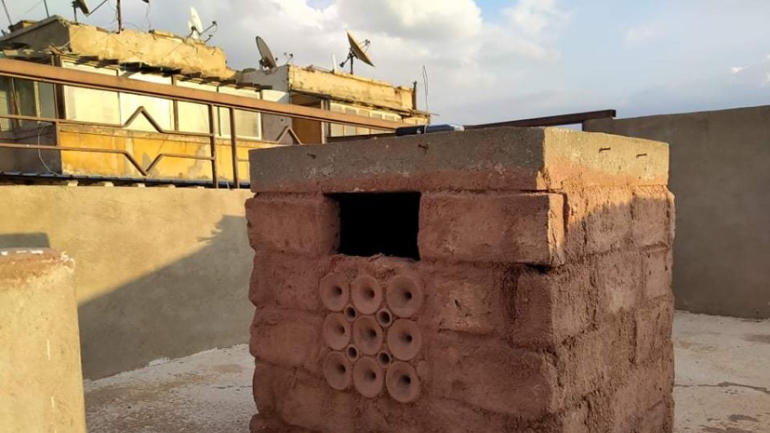As far as warm climate countries are concerned, air conditioning already accounts for a significant portion of the total energy consumption. It is not just considered as a burden to the environment, but also as a financial hit to the pocket. This problem urged architect and researcher Marwa Dabaieh to come up with an eco-cooling system.
 lertrattar201.png. Image Credit: Malmö University.
lertrattar201.png. Image Credit: Malmö University.
In Egypt, where Dabaieh tested the cooling system, air conditioning is the norm. It is very costly to both purchase and operate, particularly when it runs on electricity. Another problem in such countries is that several residents live outside the electricity grid.
Furthermore, the requirement for cooling systems will increase in hitherto colder countries, as heatwaves become more commonplace.
Being a master in sustainable and environmentally conscious architecture, Dabaieh’s innovation relies on a self-assembly concept. The construction, with the help of conventional “shisha funnels,” is made of clay and will enhance both the homes’ indoor humidity and temperature.
The goal was to lower the indoor temperature by 10 °C by integrating water, clay funnels and the natural power obtained from sun and wind. That could imply going from 35 ° to 25 °C indoors, during a hot day.
To date, the experimental attempts have been promising. In a recently reported scientific article, Dabaieh presented a decrease in the indoor temperature by 2 °C during an experiment in Cairo. Since then, she has achieved a decrease of 6 °C.
High indoor temperatures are considered to be a health risk and can have serious impacts on both physical and mental health. This was noted in Sweden in the spring and summer of 2018, which were amongst the warmest in modern history.
As per the Swedish Public Health Agency, the mortality compared to early summers was around 700 deaths. Even though it was not possible to determine which deaths were caused due to the heat, it was observed that the mortality rate was highest at the time of the hottest weeks.
Furthermore, Dabaieh feels that high temperatures tend to impact focus and concentration, which is neither good for the economy nor the society. Air conditioning is becoming more common, but the price of electricity is also a factor in Sweden.
Some people, such as pensioners, the unemployed, and refugees, cannot afford air conditioning. This means that mortality risks increasing when heat waves become more common. It is tragic that this happens when it could be resolved by being better prepared.
Marwa Dabaieh, Architect and Researcher, Malmö University
The development of a sustainable and passive cooling system will be the next step.
Clay is not expensive, which makes the price of the construction affordable, but it is expensive to develop the method.
Marwa Dabaieh, Architect and Researcher, Malmö University
Journal Reference:
Dabaieh, M., et al. (2021) Stay cool without fossil fuel. A passive eco-cooler for low-income population in informal settlements. Journal of Physics: Conference Series. doi.org/10.1088/1742-6596/2042/1/012155.
Source: https://mau.se/en/